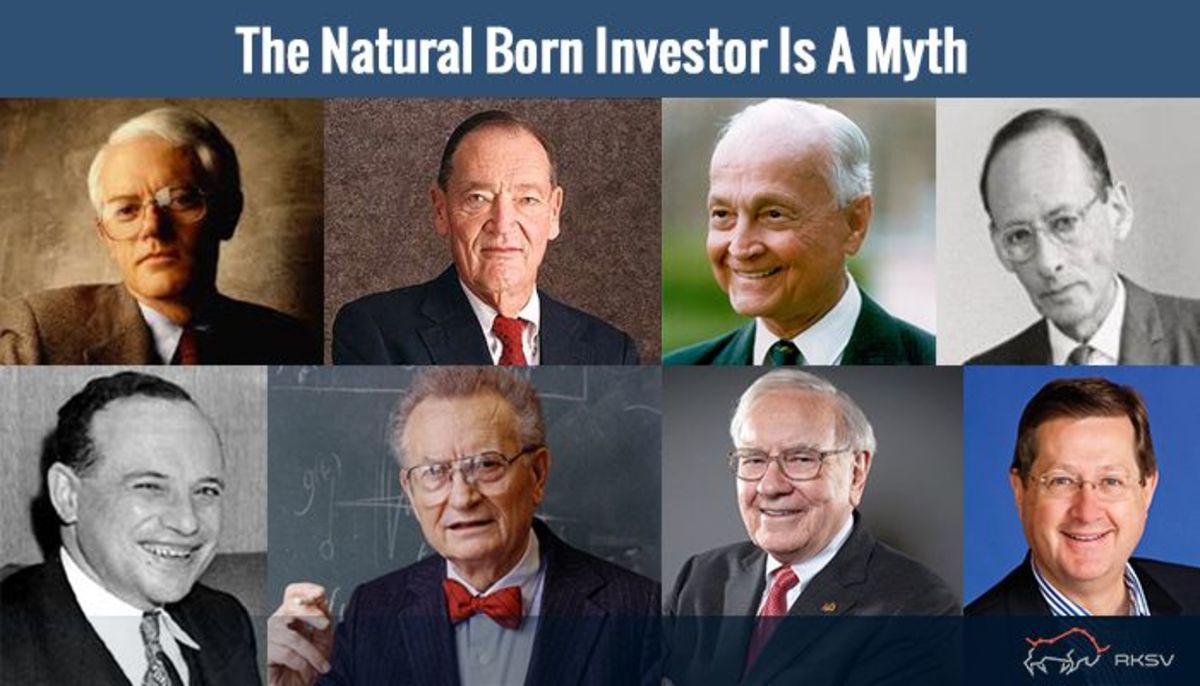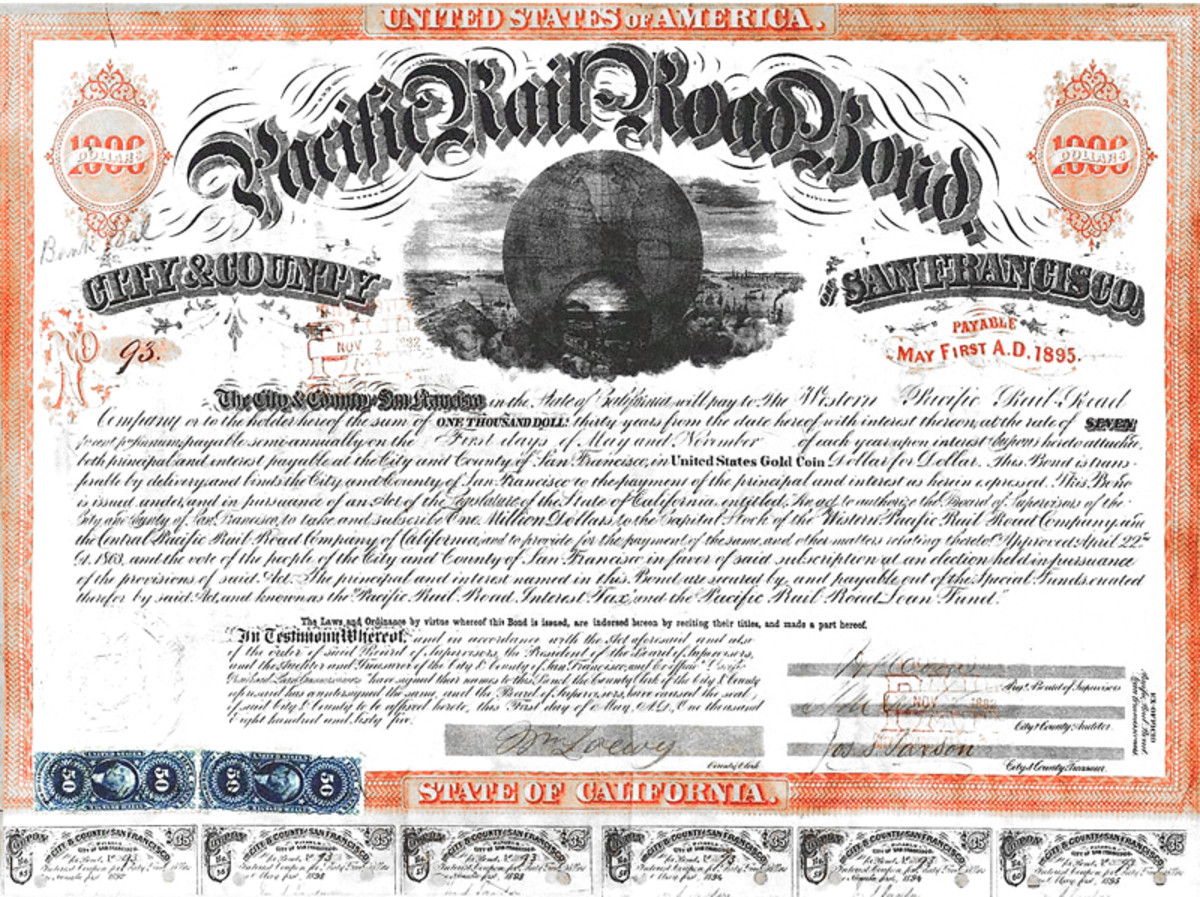Emotions Are At the Heart of the Economy
Emotional Investors are Failed Investors
Everyone knows this, and we all still do it. We base our financial decision, and our investing decisions, on emotional nonsense that ruins our returns. We impulse buy, we impulse sell, and we see our loved ones begging for something and admit defeat to their entreaties. Basically, despite the copious advice in the world, we are incapable of ignoring our emotions with our financial decisions. But, others are just as guilty of this trend. Seeking out moments where large numbers of investors will make emotional decisions instead of rational ones can lead to a new way of thinking about emotions as they relate to investing decisions.
How Emotional are Hubpages Readers with Investments?
Do you invest in companies when you see bad news about them, or sell companies when bad news strikes?
Financial Instruments Gauge and Game Emotions
When a credit ratings agency looks to gauge the interest rate of a stock, and set the credit rating, they are gauging not facts and figures, but belief. The ratings agencies are setting up a prediction of how likely a stock is to default. This may come from numbers, but it is fundamentally speculative, like gaming whether one horse will win in a race with another. This belief turns around and suggests to investors how much they will need to get paid by the investment to take the risk of investing in that vehicle. Ergo, all of this is a speculative bet based on belief, and fear of default.
Fear is an emotion.
Our whole bond market is built on fear.
Exploiting that fear, as an investor, is balancing between desired returns and the possibility of default.

Stocks Are Also Emotional
The relationship between a company and its shareholders is fraught with emotion. When money is tied up in the success of a company, and that company has minimal day-to-day interaction with the investor of said money, every little piece of information can spin wildly out of control in the minds of investors either to run up the value of the stock or tear it down. Look to the recent real estate bubble and banking crisis for a case-in-point. People believed that the value of mortgages would only go up, that the investments were secure, and information was withheld from investors to secure that false belief. The "bubble" built up as everyone believed they were making so much money, and it was so secure, and when it popped, it didn't just deflate slowly. No, it went with a loud boom that resonated all over the world as emotion turned and expectations shifted and nearly overnight, the whole world saw real estate in a new light. Most people who lost money did so not because they knew the truth, but because they followed their emotions into the bubble and followed their emotions out of the bubble. The best thing to do when one discovers one owns a stock that was over-inflated is to hold the stock and wait until fair valuation returns to the marketplace. Instead, the fear of losing everything caused folks to lose more than necessary with irrational firesales of stocks and holdings. The banking crisis as well saw the price of bank stock soar, collapse, and then come back. Following the emotions of the moment, as an investor, led so many people who were just watching the news for their investment decisions to mistime their actions based on the many other people doing the same, bloody thing. When emotion turns in the world economy, it does so en masse, and the emotions become a catalyst for economic activity.
Even simpler than this, people love their Apple products. That love translates into a devoted base of fans that continue to pay a premium for their devices. This is a company that had a meteoric rise in value and profit culminating in an apex at the product launch just after the death of Steve Jobs. That narrative in the public sphere of success, culminating in the tragic loss of the hero, helped to drive the stock price to heights rarely seen in publicly-traded stocks. The amount of love people felt for Steve Jobs was wrapped up in their love of the devices he championed. Emotion was as much a part of the value equation for an investor as the sales numbers.
P/E Ratios to Stock Prices are a Great Example!
So, comparing two different stocks, one of the first things investors do is gauge the Profits-to-Earnings ratio. In the case of two related stocks, the value of the stock will be gauged by that ratio in relationship to other companies in the same or similar business, compared to the cost of the stock. Ergo, the stock price is already factoring in the "belief" that investors have in a company or brand based on what the P/E ratio reveals. The highest cost of stock based on P/E in any industry is the one with the most "belief" by the investor class. It is irrational, then, to invest in the stock with the highest cost based on the P/E, yet...
What Does It Mean to You as an Investor?
Don't let any economic guru try to dazzle you with a rational explanation for any stock or bond. They are always a gamble. There is always risk. Don't rely merely on numbers to gauge your own investment choices. During the banking crises, it was revealed that the Fed was quietly and secretly propping up certain banking institutions. In this, numbers-based investors got hosed because they were looking at the balance sheets and making decisions based on the balance sheets. They weren't looking out into the political winds and media sphere where the emotions of the political class were propping up banks even months and years after the original banking crisis during the Great Recession.
What this means, to an investor, is emotions are as important as numbers when making decisions. Not just our own emotions, but everyone's! Look around at the larger sphere of debate and see if there is a strong gust of emotion blowing things in a direction. Then, make careful, calculation based not just on what the numbers say, but on how people feel about those numbers.
The classic advice of Warren Buffet and Charlie Munger, to be greedy when others are fearful and fearful when others are greedy, is based on emotions, and the whole advice of their storied careers is one where investors must be aware of emotions and make decisions without them!
There is no get-rich-quick scheme
Economics is the gauge of the activity of a nation and world. The community economy reflects the values, emotions, actions, and strategies of the community. As an investor, taking into consideration all of these aspects is a key to success, and the source of great frustration.
As with any gambling, the results will be inconsistent and no one strategy will be proven to succeed over the long haul. Savings alone will not beat inflationary pricing. Investing alone will often lead to the booms and busts of a financial sector that has super-heated with modern technology and information cycles, without adequate regulation.
Don't just look at facts and figures. That won't be the whole picture. Human emotions are inextricably linked to business and industry and politics and must be part of the risk/reward equation while planning out a portfolio strategy.









